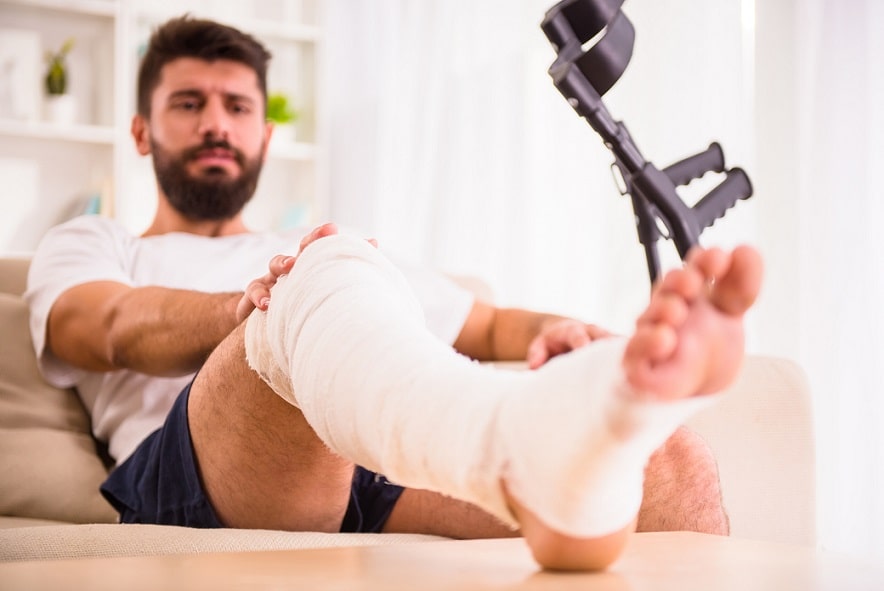 Whiplash injuries are the most common type of injury you can get as a result of a road traffic accident; and its one of the most frequent types of injuries we deal with here at The Injury Lawyers. But what exactly is whiplash? What are the symptoms of whiplash? How can you recover from it?
Whiplash injuries are the most common type of injury you can get as a result of a road traffic accident; and its one of the most frequent types of injuries we deal with here at The Injury Lawyers. But what exactly is whiplash? What are the symptoms of whiplash? How can you recover from it?
As we are specialists in personal injury law, we know a lot about whiplash injuries. Here is a quick guide of the ins and outs of whiplash:
What is Whiplash – The Definition
Whiplash is a term used to describe a soft tissue injury that affects the neck, back, and shoulders area of your body. It is caused by a sudden movement of the head forwards, backwards or sideways. This vigorous movement damages the ligaments and tendons in the neck, back and shoulder areas causing severe pain and in some cases immobility.
For example, if you are correctly proceeding in your vehicle, the sudden impact from another vehicle colliding into the back of you can cause you to jolt forward and then back again due to your seatbelt stopping you from continuing forward. This sudden movement back and forth will cause a whiplash injury.
Whiplash Injuries
The sudden movement of your body can cause a lot of pain, stiffness and loss of movement. It can cause headaches, muscle spasms and sometimes the pain can run down through the shoulders and arms. When suffering from whiplash, the ligaments in the neck are sprained, which occurs when a ligament is overstretched – like when your body is suddenly thrown in a car accident. Although the ligament is not broken, the strain can sometimes take a long time heal; often several months.
It can affect people in different ways – some people complain of restlessness and loss of sleep, and are unable to take part in certain activities because of the restrictions the pain and lack of movement can cause. It can also cause problems at work as much as any aspect of a person’s daily life.
How Common is Whiplash?
Whiplash is a common injury that results after people have been involved in road accidents. As previously described this is because of the sudden vigorous movement due to the impact of the colliding vehicles. When there is a collision this causes the body to jolt forwards and ‘whips’ you backwards again, you will likely end up suffering from the injury.
Whiplash does not have to occur because of a severe accident – whiplash can often develop following low speed collisions as well. No matter how the accident occurred, anyone can develop whiplash if they have been involved in a road accident.
Sometimes whiplash affects women more than men due to their neck muscles being a lot weaker. Nevertheless, male, female or child, we all can suffer whiplash injuries.
Recovering from Whiplash
Often a medical professional will advise for someone who has symptoms of whiplash to undergo physiotherapy or osteopathic / chiropractic treatment in order to help speed up the healing process. As every individual’s whiplash injury is different, the length of time to take to heal will vary from person to person.
Commonly you will be provided with pain killers and a course of physiotherapy treatment to help you recover from your injuries, but it won’t just happen overnight; it will take time for the pain to heal and get you back on your feet again.
At The Injury Lawyers we understand the importance of recovering from whiplash injuries and getting back to a normal way of life so we offer free private medical treatment to all our clients. Often NHS waiting lists are too long and you need the treatment straight away so we are here to help.
If you have been involved in road traffic accident that was not your fault and you have sustained whiplash injuries as a result, don’t hesitate to contact The Injury Lawyers to not only get the maximum compensation you deserve,but to help you recover from your whiplash injury and help you back on your feet again.

 Whiplash injuries are the most common type of injury you can get as a result of a
Whiplash injuries are the most common type of injury you can get as a result of a 









